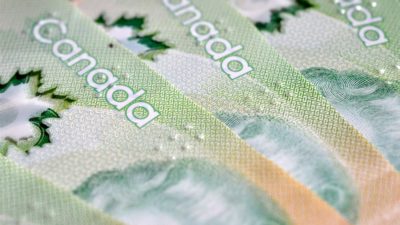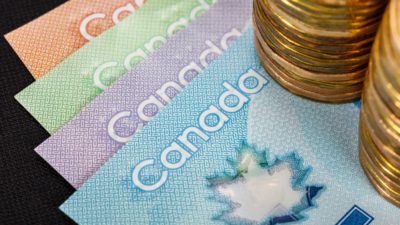It’s the most wonderful time of the year.
Yes, I’m talking about TFSA contribution season, that special time when finance nerds get to put an additional $6,000 to work inside their Tax-Free Savings Accounts.
Personally, I have one important goal for my TFSA. I want the account to grow steadily until it’s time for me to retire, and then I’ll use it to provide a steady source of tax-free income. This means I try to load it up with a combination of dividend-growth stocks and more secure high-yield equities. Combined, these two sources ensure a nice dividend yield today and the potential for growth in the payout going forward.
Let’s take a closer look at the stock I purchased with this year’s TFSA contribution.
Canada’s finest bank?
I’ve long considered Royal Bank of Canada (TSX:RY)(NYSE:RY) as one of Canada’s finest banks. It’s simply a behemoth.
Let’s start with its Canadian operations. Royal Bank has the highest or second-highest market share in every banking category in Canada. More Canadians have a Royal Bank bank account than any other financial institution. The company is neck-and-neck with Toronto-Dominion Bank as Canada’s biggest mortgage lender. Its wealth management, credit card, and insurance businesses are strong as well. RBC Capital Markets has long been one of the leaders in investment banking, too.
Canadian banking is one of the best businesses on the planet. The top five players virtually own the market, ensuring rational competition. The riskiest mortgages are insured against default, which takes a lot of the risk away from that part of the business. In fact, Canada’s top banks have been some of the best long-term investments on the planet, and none of them has missed a dividend in more than 100 years. Royal Bank started paying investors a dividend back in 1870 and hasn’t missed a payment since.
The company has taken its dependable Canadian banking earnings and put them to work in other nations with better growth potential. RBC’s U.S. operations – which include retail banking and wealth management services – now make up 23% of its total earnings, while its operations in the Caribbean add 15% to the bottom line. The U.S. part in particular also offers much better growth potential than the rest of the business, as the fragmented nature of the U.S. financial services market makes it a great place to go shopping for assets.
The opportunity
Royal Bank has long been the most expensive Canadian banking stock. That’s not really surprising; usually the best company in the sector has a lofty valuation.
A couple of factors helped convince me today is a good entry point. First of all, the company’s valuation has shrunk a bit as general weakness has hit the Canadian banking sector. The stock now trades at just 11.2 times expected 2020 earnings, with the forward price-to-earnings ratio falling to under 11 times expected 2021 earnings. That’s a very reasonable price to pay.
Another interesting value metric is the dividend. Royal Bank shares currently yield a hair over 4%, which is quite a high yield for this particular stock. The payout is usually in the 3.5% range. As someone who’s looking for income from his TFSA, the momentarily higher yield was an attractive feature.
The bottom line
For me, the choice was simple. Royal Bank is an excellent company, an institution at the top of Canadian business. I had the opportunity to buy shares at what I view as at least a fair valuation. And I’m confident the company can continue to grow both the bottom line and its generous 4% dividend for years to come.
I couldn’t pass up the opportunity to own this company for the long term. It’s just too good.








